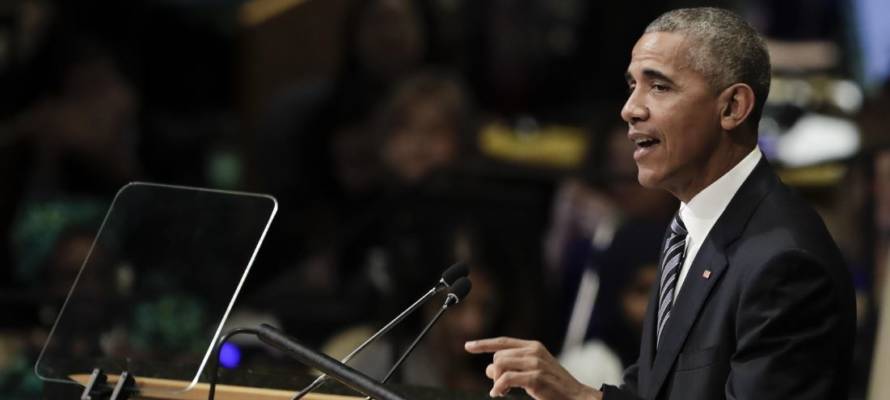There is significant bipartisan concern in Washington that President Barack Obama “won’t have Israel’s back” at the United Nations following the election of his successor in November, Clifford D. May, a prominent Middle East expert, says.
By: Barney Breen-Portnoy/The Algemeiner
Clifford D. May, president of the Foundation for Defense of Democracies think tank, spoke with The Algemeiner a day after 88 US senators sent a letter to Obama urging him to veto any one-sided resolutions regarding the Israeli-Palestinian conflict during the remainder of his time in office.
The letter, which was organized by the American Israel Public Affairs Committee (AIPAC), made “very telling points,” May said.
“A one-sided UN Security Council resolution would be damaging not just to Israel, but to any possibility of peace in the near future,” May warned.
He further explained, “I think it’s fairly obvious at this point that the UN is egregiously prejudiced against Israel. And what you don’t want to see is something like what the French have been discussing — mandated negotiations, and if those negotiations fail to produce fruit, the Palestinians would be rewarded. That would assure that [Palestinian Authority President Mahmoud] Abbas would not make any concessions.”
In his final address to the UN General Assembly on Tuesday, Obama said, “Israelis and Palestinians will be better off if Palestinians reject incitement and recognize the legitimacy of Israel, but Israel recognizes that it cannot permanently occupy and settle Palestinian land.”
May noted that those words would “probably feed into the concern that exists that after the election Obama will take actions that will tie the hands of the next president.”
“People in this town who are in favor of a productive peace process — those who want to see the Israelis and the Palestinians living side by side in peace — are worried and I think the idea is that if President Obama is contemplating such a move now, that needs to be discouraged,” May concluded.
In an interview with The Algemeiner last week, former State Department Middle East negotiator Aaron David Miller said the signing of the new 10-year memorandum of understanding (MOU) on US security assistance to Israel might serve as a “trigger mechanism” for a fresh American-led Israeli-Palestinian peace push during the lame-duck period between the election on Nov. 8 and the inauguration of the next president on Jan. 20.
Israeli Prime Minister Benjamin Netanyahu expressed his reservations about a potential US peace drive during a meeting last month with a visiting bipartisan delegation of American foreign policy experts.
